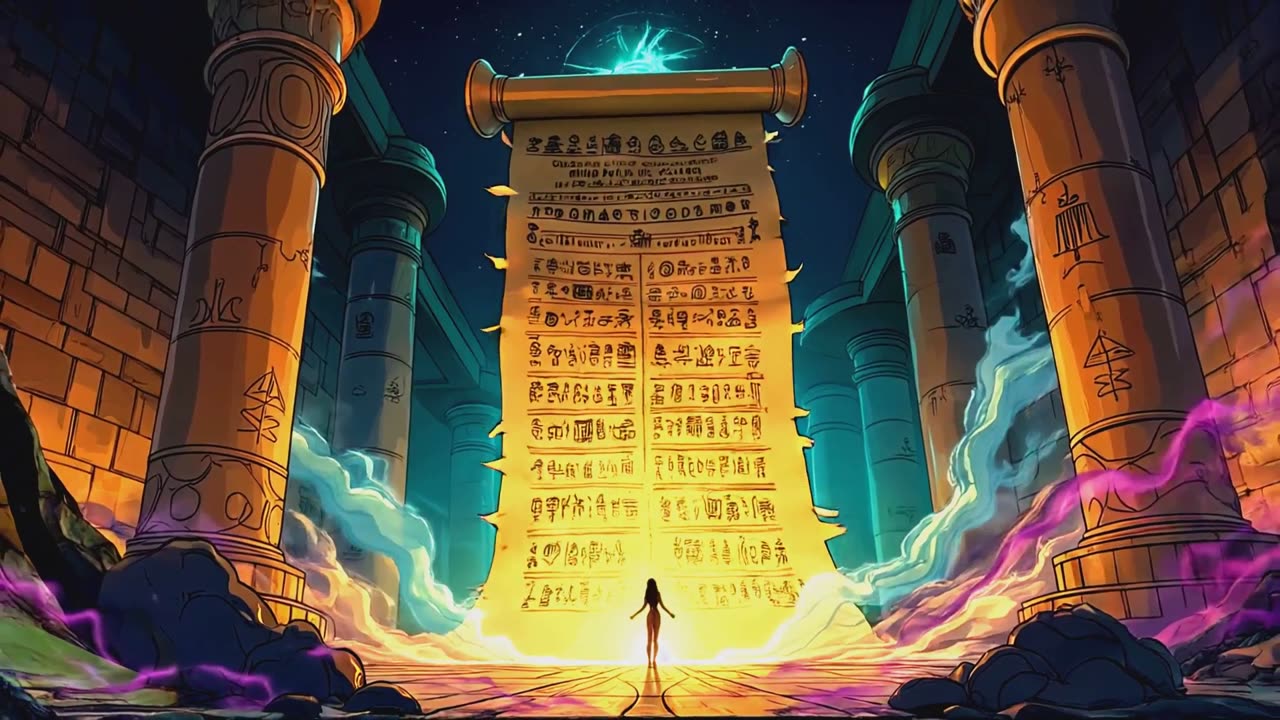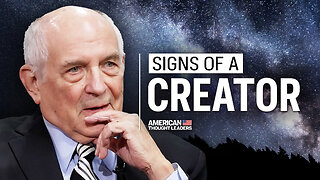Premium Only Content

Wisdom of Thoth | The Shape of the Law
The Law is not a wall. It is not a cage. It is not the rusted chain you imagine when you whisper justice through clenched teeth. Thoth, Djehuty, keeper of the celestial archive, knows the truth: the Law has shape, and that shape is not fixed. It curves, it bends, it shifts with time—not because it is weak, but because it is alive. To understand the Law is not to memorize its letters—it is to perceive its form, to trace its lines as they move across history, consciousness, and the soul of the world.
Thoth teaches that the Law is a vessel. It holds what a people believe is right, fair, necessary. But like any vessel, it can crack. It can be poorly formed. It can be too small for what it is asked to contain. And still, the illusion persists: that the shape of the Law is sacred because it is old. But Thoth—scribe of first speech, architect of Ma’at—reminds us that sacredness does not lie in preservation alone. It lies in alignment. A law that no longer reflects truth is not sacred—it is superstition enshrined.
To walk in wisdom is to know the difference. Thoth does not demand that we worship the Law, but that we shape it wisely. He calls upon those who can see the geometry of justice beneath the words, the rhythm of balance behind the codes. The Law, in its true form, is a pattern—a sacred structure that must be revised as the world evolves. When the lived experience of the people no longer fits the vessel of law, it is not the people who must contort themselves. It is the Law that must be reshaped.
This reshaping is not rebellion—it is recalibration. The wise do not break the Law for spectacle; they transform it for survival. And not all who change the Law do so wisely. That is why Thoth does not give us permission without responsibility. He gives us tools: logic sharpened by clarity, language rooted in meaning, pattern guided by principle. In his eyes, law is not just rule—it is ritual, the ongoing act of aligning the seen with the unseen, the social with the sacred.
To change the Law is to sculpt reality. Every revision is a chisel stroke against the stone of the collective. Will you carve blindly? Or will you shape with intention? This is the burden Thoth lays at your feet—not just to question what is, but to imagine what could be and give it form. Not in fire alone, but in form that endures. This is not the Law as command—it is the Law as design, and design requires vision.
So let it be known: the Law has shape, and you are its shaper. Not by divine decree, but by human inheritance. The question is not whether you will shape it—but whether you will do so in the image of fear, or in the pattern of truth. Thoth offers you the vision, the voice, the measure. What you build with them—that is your legacy.
-
 19:12
19:12
Robbi On The Record
8 hours ago $12.09 earnedThe Loneliness Epidemic: AN INVESTIGATION
32.6K65 -
 14:45
14:45
Mrgunsngear
1 day ago $92.73 earnedFletcher Rifle Works Texas Flood 30 Caliber 3D Printed Titanium Suppressor Test & Review
63K17 -
 17:17
17:17
Lady Decade
1 day ago $5.44 earnedMortal Kombat Legacy Kollection is Causing Outrage
35.2K6 -
 35:51
35:51
Athlete & Artist Show
1 day ago $8.60 earnedIs Ryan Smith The Best Owner In The NHL?
45.6K4 -
 22:56
22:56
American Thought Leaders
2 days agoCharles Murray: I Thought Religion Was Irrelevant to Me. I Was Wrong.
44.2K21 -
 36:22
36:22
Brad Owen Poker
9 hours agoGIGANTIC $17,000+ Pot In BOBBY’S ROOM! TRAPPING Top Pro w/FULL HOUSE!! Big Win! Poker Vlog Ep 326
44.2K2 -
 3:53
3:53
NAG Daily
1 day agoRUMBLE RUNDOWN: DREAM HACK SPECIAL W/Greenman Reports
40K8 -
 1:28
1:28
Damon Imani
2 days agoThey Laughed at Trump’s Cognitive Test — Damon Made Them REGRET It!
44.7K29 -
 9:14
9:14
Freedom Frontline
1 day agoAdam Schiff PANICS As Eric Schmitt Exposes His Dirty Lies LIVE
29.6K61 -
 10:32
10:32
GBGunsRumble
1 day agoGBGuns Armory Ep 153 Adler Arms AD-9`
19.5K2